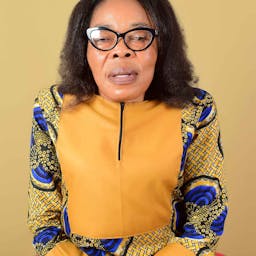African Women and the Struggle for Gender Equality
May 28, 2019
Story
In very many respects, African communities see women as unequal with men. In community meetings, traditional settings, marriage negotiations, rights to the positions of leadership / rulership, rights to child ownership, headship of families, etc women do not share same spaces with men. In my culture, women do not inherit property such as land. With patriarchy in operation women have always been relegated to the background.
Leadership occurs within a given indigenous configuration of power, authority and legitimacy. In leadership women are inconsequential simply because the configuration is shaped by culture, institutions, history, goals and context, all in consonance with patriarchal set up. In Africa, poverty wears the face of women because women are the deprived lot and in a deprived lot there is no educational investment, no capital such as land to inherit. Hence nothing is invested, there is nothing to reap.
African women are hardly known for giving up. They persevere. They fight. Through their fighting women are changing the paradigm, women work to change the societal norms meant to inflict pains and agony on them. In pre-colonial Nigeria for instance, Mrs. Olufunmilayo Ransome-kuti, founded the Abeokuta Women’s Union through which she pressed for removal of the cause of hardship on women and insisted on the equality of all. Her culmination point was the abolition of a policy (Sole Native Authority) which was gender insensitive.
Our fore-mothers, less educated as they were, sacrificed their personal comfort for a fight that worth the fighting. They fought shamelessly for improved living for women of today. Their zeal and ruggedness brought us steps to freedom, at least liberation from some obnoxious and unthinkable treatments such as widowhood practices, denial of certain food and denial of education to girl – children and of course doing away with female genital cutting.
With the Nairobi Forwarding looking strategies, Equality, Development and Peace became the song in the mouths of African women. The Beijing Platform for Action further summed it up in a global women’s anthem-- a Song for women everywhere, letting it ring around and never to cease, side by side in true equality with men. Since 1995, there has been so much talk about women liberation, women empowerment, women emancipation, gender balance, gender mainstreaming, etc.
In my country for instance, with the strategies and elections of more women into political and leadership positions especially into law making positions one would think that women are gradually breaking the barriers. An African adage says that a child would not be found guilty when the same child’s father is on the judgment table. A recent turning down of a women’s bill by the Nigerian Senate has proved me wrong.
On International Women’s day 2016, some days before the turning down of the bill, we were discussing strategies for achieving gender parity. We had a handful of women members of Nigerian law making body at the program. To my greatest surprise a woman politician told women activists to forget about equality with men in Nigeria. She continuously emphasised that our issues should not be focused towards equality with men or disobeying our husbands. Another prominent woman urged hundreds of women present in this programme on International Women's day to always seek permission from men before coming to present papers on gender related issues. Aah! this is a program we started with the same women's anthem reminding ourselves of obligations to no longer in the shadows but side by side in true equality, a women's anthem accepted across the country: All across the nation, all around the world and ended with Equality Development and Peace! The theme we discussed was Pledge for Parity. How then do we strategize for parity if we do not want to talk about equality with men? I did not get a satisfactory answer.
The grass root women expect greater influence and making of laws that protect women from vulnerability since we have a good number of women in the law making House. I for one, expect domestication of International laws such as CEDAW in African countries which would invariably mean putting in place protective laws that could assist improve the lot of African women and bring them at par with men. But the reverse is the case.
The truth is that African women have been cowed to life of subordination. Majority of women in the forefront of activism these days in African do not want to be seen as feminists. They do not want to be seen in the public as rubbing shoulders with their husbands. They hate to be seen as insubordinate to men. The recent development in Nigeria buttresses my thinking.
Till today Nigerian women are still battling with the feeling of disappointment which makes one to think that it is not yet Uhuru for African women. How do we go from here?
Celine Osukwu




